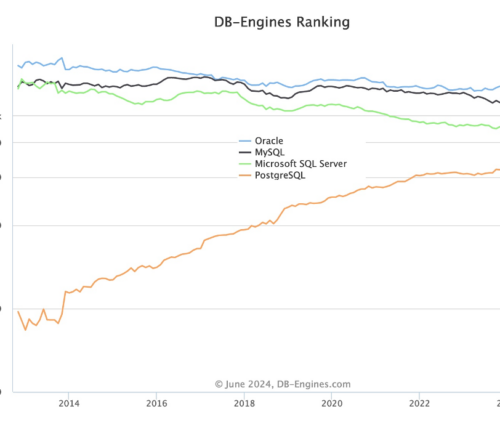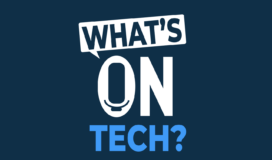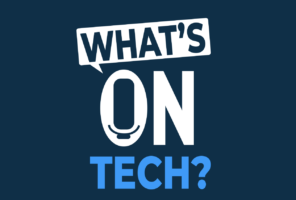Video Podcast Series: What’s On Tech? Episode 5
Why PostgreSQL is Taking Over
Welcome to SPR’s video podcast series, What’s on Tech?, where we ask technology experts what’s going on in tech right now. This episode is hosted by Mike Saccotelli, Senior Practice Director at SPR, with special guest Michael Lennon, Senior Software Engineer at SPR.
Be sure to watch the episode below, or catch up on the key points in our recap.
Video Recap
In recent years, PostgreSQL has transitioned from being a reliable database option to becoming the preferred choice for a wide range of new applications. At SPR, we’ve observed a significant increase in clients choosing PostgreSQL, even those with long-standing commitments to other database systems like SQL Server. This shift is driven by several compelling factors that underscore PostgreSQL’s versatility, extensibility, cost-effectiveness, and robust feature set.
PostgreSQL’s adoption rates have surged across various industries and organizational sizes. According to the DB-Engines Ranking, which measures database popularity based on factors like mentions in job postings, discussions on social media, and web searches, PostgreSQL consistently ranks among the top databases worldwide. Its ranking has consistently grown, while other top choices like Oracle, MySQL, and SQL Server have either stagnated or declined. Notably, PostgreSQL has won the DBMS of the Year award in 2017, 2018, 2020, and 2023, further solidifying its position as the default choice for new application development.

PostgreSQL Does it All
PostgreSQL has earned its place at the top by excelling across diverse use cases. Whether you’re managing complex relational data, handling semi-structured JSON documents, or powering real-time analytics with OLAP (Online Analytical Processing) capabilities, PostgreSQL delivers robust performance and reliability. This versatility eliminates the need for multiple specialized systems, streamlining development and reducing operational overhead.
For example, PostgreSQL can replace the need for ElasticSearch with its full-text search, Redis with its caching capabilities, MongoDB for JSON document storage, and even RabbitMQ or Kafka for message queuing through its SKIP LOCKED feature.
“Batteries Included” and Extensible
One of PostgreSQL’s standout features is its comprehensive “batteries included” approach, combined with its extensibility. Out of the box, PostgreSQL offers a rich set of features, including advanced SQL support, full-text search, and powerful indexing mechanisms. Additionally, its extensible architecture allows developers to enhance functionality through a vast ecosystem of extensions. For instance, Citus enables horizontal scaling for massive datasets, while Pgvector supports vectorized operations essential for AI, NLP, and ML applications.
The Open Source Advantage
As an open-source platform, PostgreSQL eliminates licensing costs that can escalate dramatically with proprietary databases. For example, a year's license for SQL Server Enterprise can cost upwards of $325,000, while PostgreSQL requires only a fraction of that amount for comparable computing power, making it a cost-effective choice for organizations of all sizes. This financial advantage extends further with cloud services like AWS RDS, where PostgreSQL’s pricing structure remains significantly lower than licensed alternatives. Microsoft even offers Citus, a PostgreSQL extension, for horizontal sharding and distributed SQL transactions when your database outgrows the largest instances.
Proprietary Databases Built on PostgreSQL
The robustness and versatility of PostgreSQL have also led to the development of popular proprietary databases built atop its foundation. AWS Redshift, Aurora, TimescaleDB, Yugabyte, and Neon are examples of specialized databases leveraging PostgreSQL’s core capabilities while catering to specific workload requirements, such as data warehousing, time-series data, distributed SQL, and real-time analytics.
Great Documentation and Active Development
PostgreSQL is renowned for its exceptional documentation and a thriving community that actively contributes to its development and support. This ensures that users have access to comprehensive resources, timely updates, and expert guidance, fostering a smooth adoption and ongoing management experience.
Features like LISTEN/NOTIFY queues and advanced indexing mechanisms, such as pg_trgm for trigram search and similarity, further enhance PostgreSQL’s appeal as a Swiss Army knife for developers and database administrators alike. For further information, check out Postgres is Enough, a community wiki of resources for using PostgreSQL effectively across many use cases.
Conclusion
As PostgreSQL continues to evolve, its position as the leading choice for modern applications becomes increasingly evident. Its combination of robust features, extensibility, cost-effectiveness, and strong community support makes it not just a database but a strategic asset for organizations aiming to innovate and scale efficiently. Whether you're a startup launching your first application or an enterprise managing petabytes of data, PostgreSQL provides the foundation for success in the rapidly evolving landscape of data management and analytics.
In conclusion, PostgreSQL’s rise is not merely a trend but a testament to its ability to meet the diverse and evolving needs of today's engineering and business environments. As organizations increasingly prioritize flexibility, performance, and cost efficiency in their technology stack, PostgreSQL stands out as the definitive choice for powering the next generation of applications and data-driven insights.


